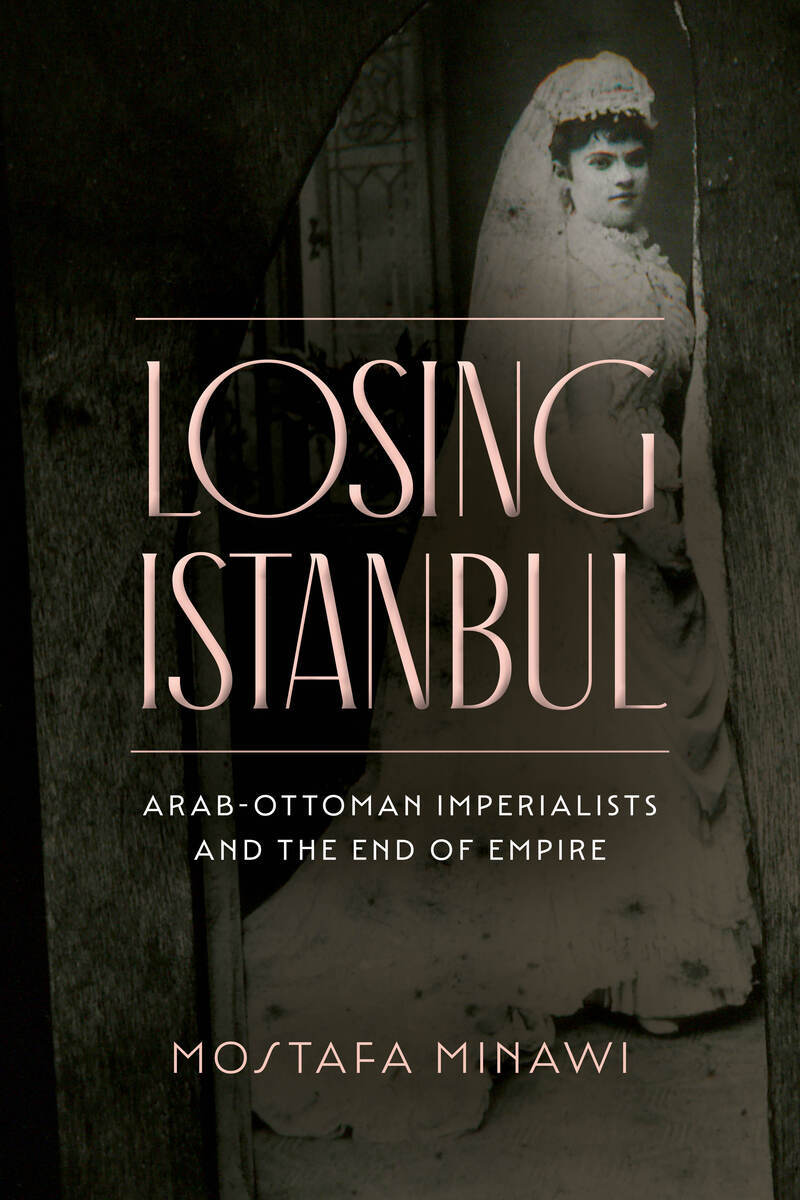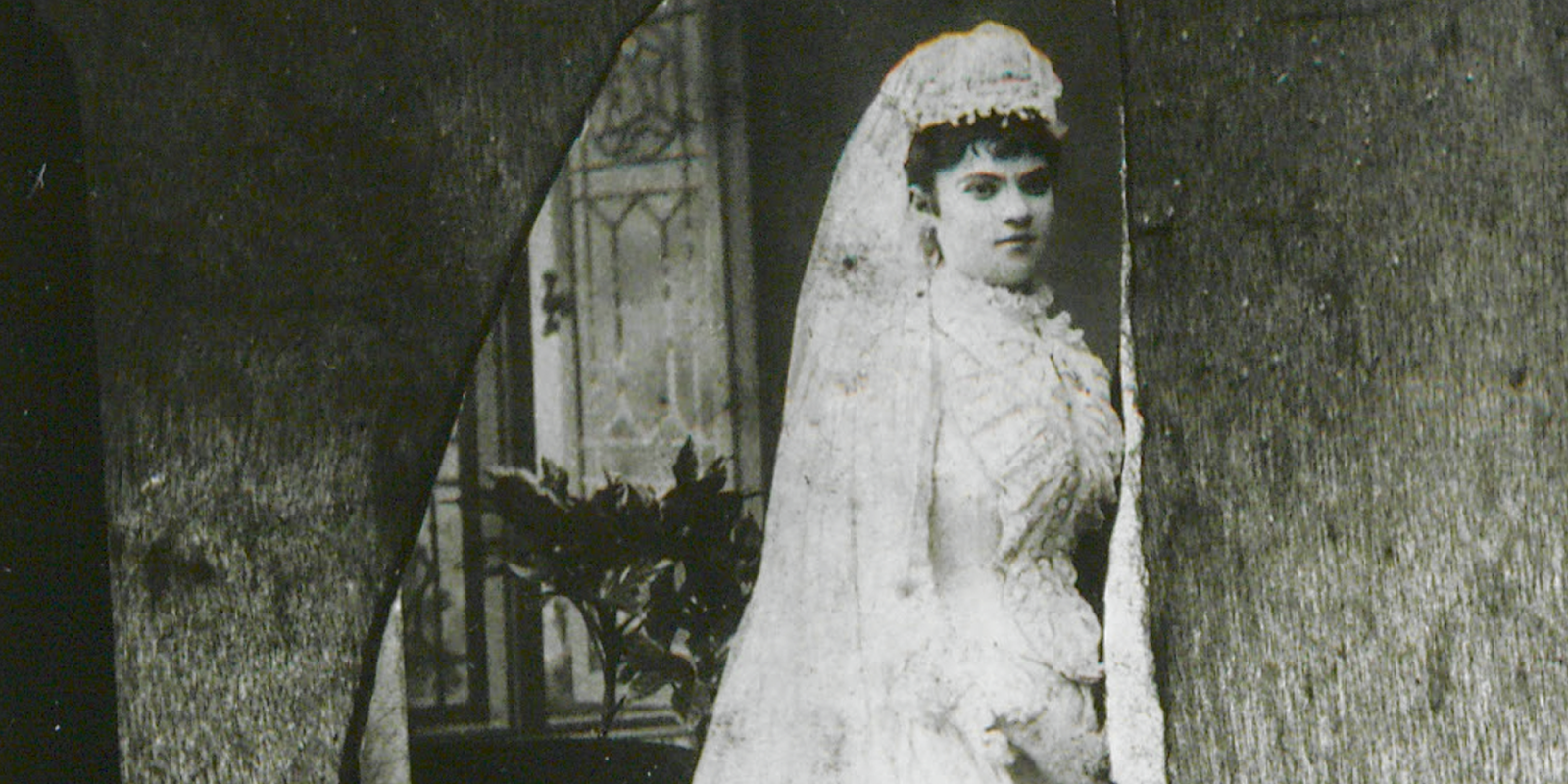Arab-Ottoman Imperialists at the End of Empire
hosted by Zeinab Azarbadegan
| What did it mean to be Arab during the last decades of the Ottoman Empire? What did it mean to be Arab and invested in continuation of the Ottoman Empire? In this episode Mostafa Minawi answers these questions by focusing on the lives of two Arab-Ottoman Imperialists from the same family in Damascus, the al-'Azm or Azamzade family. By recounting their lives, excavating their writings, and narrating how their descendants remember them, Minawi explores questions of belonging, race and ethnicity, and the emotional world of a family divided by the fracturing of an centuries-old empire.

 | Click for RSS Feed | 
|

|
What did it mean to be Arab during the last decades of the Ottoman Empire? What did it mean to be Arab and invested in continuation of the Ottoman Empire? In this episode Mostafa Minawi answers these questions by focusing on the lives of two Arab-Ottoman Imperialists from the same family in Damascus, the al-'Azm or Azamzade family. By recounting their lives, excavating their writings, and narrating how their descendants remember them, Minawi explores questions of belonging, race and ethnicity, and the emotional world of a family divided by the fracturing of an centuries-old empire.
Stream via SoundCloud
Contributor Bios
 |
Mostafa Minawi is an associate professor of History and the director of Critical Ottoman and Post-Ottoman Studies initiative at Cornell University. |
 |
Zeinab Azarbadegan is a British Academy Postdoctoral Fellow at the London School of Economics and Political Science (LSE). Her research focuses on the intersection of inter-imperial relations and history of science, technology, and medicine, in nineteenth century Ottoman Iraq |
Credits
Episode No. 540
Release Date: 28 March 2023
Recording Location: MESA 2022, Denver, Colorado
Sound production by Zeinab Azarbadegan
Music: Katibim by Safiye Aliye and Banat Iskandaria by Mohammed El-Bakkar
Images and bibliography courtesy of Mostafa Minawi
Release Date: 28 March 2023
Recording Location: MESA 2022, Denver, Colorado
Sound production by Zeinab Azarbadegan
Music: Katibim by Safiye Aliye and Banat Iskandaria by Mohammed El-Bakkar
Images and bibliography courtesy of Mostafa Minawi
Further Listening
 |
Michael Provence | #311
4/7/17
|
Military Education and the Last Ottoman Generation |
 |
Selim Deringil | #457
4/2/20
|
Cihan Harbinde Arap Toprakları ve Osmanlı-Türk Hatıratı |
 |
Hans-Lukas Kieser | #435
11/22/19
|
A Political Biography of Talaat Pasha |
 |
Nefin Dinç | #387
10/20/18
|
The Incredible Life of Antoine Köpe |
 |
Yiğit Akın | #429
10/3/19
|
How War Changed Ottoman Society |
 |
Stacy Fahrenthold | #404
3/2/19
|
WWI in the Syrian and Lebanese Diaspora |
Images

A photo of Sadik al-Mu’ayyad Azmzade. Source: Private Family Archive. Reprinted with permission.

A photo of Shafiq al-Mu’ayyad Azmzade. Source. Photo taken by Photo Luxe Studios in Aleppo at the end of the 19th century. Source: The public al Azm Facebook page. Reprinted with permission.

Bank record of Sadik al-Mu’ayyad Azmzade. Source: Salt Research, Ottoman Bank Collection, OFTS0021. Purchased the right to reprint from Salt Research.

A photo of Nimet Hanım on her wedding day to Shafiq al-Mu’ayyad Azmzade in 1901. Source: Marmara University, Taha Toros Archive, document no: 001560153008, permanent link, accessed: 17.01.2022. Reprinted with permission.

A studio photo of Giyas on the left, Bilal in the middle, and Jelal on the right, 1903. Source: Private Family Archive. Reprinted with permission.
Select Bibliography

Akarlı, Engin Deniz. “The Tangled Ends of an Empire: Ottoman Encounters with the West and Problems of Westernization—an Overview.” Comparative Studies of South Asia, Africa and the Middle East 26, no. 3 (2006): 353–66.
Cemil Aydın, The Idea of the Muslim World: A Global Intellectual History. Cambridge, MA: Harvard University Press, 2017.
Çiçek, M. Talha. “From ‘Notable Syrians’ to ‘Ordinary Anatolians’: The Politics of ‘Normalization’ and the Experience of Exile During World War I.” New Perspectives on Turkey 65 (2021): 1–29.
Fanon, Frantz. Black Skin, White Masks. Translated by Charles Lam Markmann. 2nd ed. London: Pluto Press, 2008.
Ginzburg, Carlo. Clues, Myths, and the Historical Method. Translated by John Tedeschi and Anne C. Tedeschi. Reprint edition. Baltimore: Johns Hopkins University Press, 2013.
Kayalı, Hasan. Arabs and Young Turks, Ottomanism, Arabism, and Islamism in the Ottoman Empire, 1908-1918. Oakland: University of California Press, 1997.
Minawi, Mostafa. “International Law and the Precarity of Ottoman Sovereignty in Africa at the End of the Nineteenth Century.” The International History Review 43, no. 5 (2021): 1098–1121.
Philliou, Christine M. Biography of an Empire: Governing Ottomans in an Age of Revolution. Oakland: University of California Press, 2010.
Provence, Michael. The Last Ottoman Generation and the Making of the Modern Middle East. Cambridge: Cambridge University Press, 2017.
Sohrabi, Nader. Revolution and Constitutionalism in the Ottoman Empire and Iran. Cambridge: Cambridge University Press, 2011.
Troutt Powell, Eve. Tell This in My Memory: Stories of Enslavement from Egypt, Sudan, and the Ottoman Empire. Stanford: Stanford University Press, 2012.
Bourdieu, Pierre. “Habitus.” In Habitus: A Sense of Place, edited by Jean Hiller and Emma Rooksby, 27–34. Aldershot, UK: Ashgate, 2002.











Comments
Post a Comment
Due to an overwhelming amount of spam, we no longer read comments submitted to the blog.